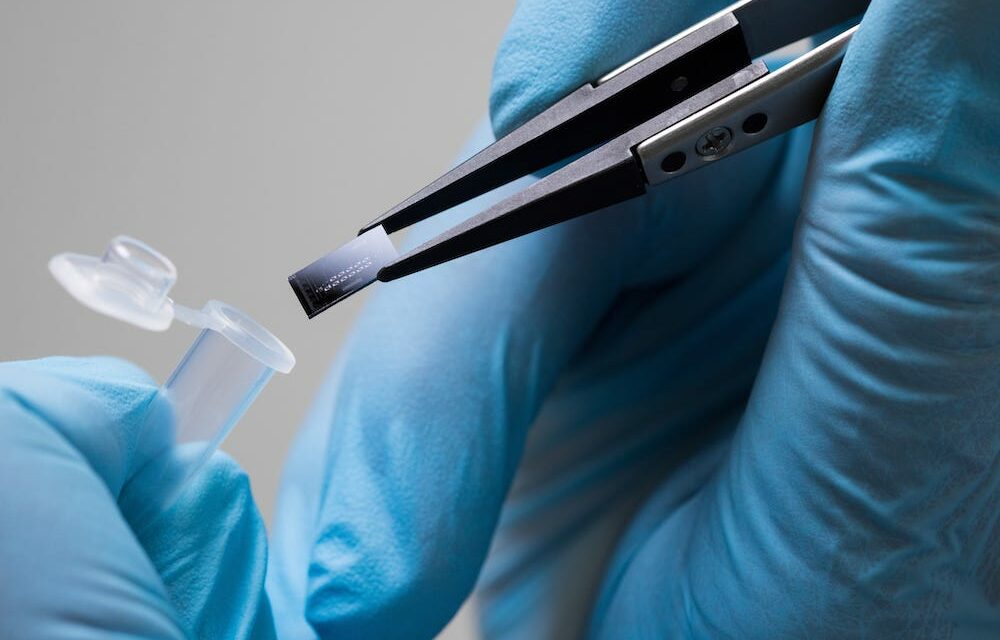Summary: Surfix Diagnostics, the Netherlands Cancer Institute (NKI), and CRCbioscreen are partnering to enhance colorectal cancer (CRC) screening using advanced diagnostic platforms and novel biomarkers, supported by a PPP grant from Health~Holland.
Key Takeaways:
- The collaboration aims to develop a stool-based test using Surfix Diagnostics’ photonic platform and NKI’s biomarkers to improve detection of high-risk precursor lesions and colorectal cancer.
- The current FIT screening method misses 25-30% of cancers and 70% of advanced adenomas, highlighting the need for more sensitive detection methods.
- The project promises significant societal, economic, and scientific benefits by enabling early intervention, reducing healthcare costs, and enhancing CRC screening accuracy.
Surfix Diagnostics alongside the Netherlands Cancer Institute (NKI) and CRCbioscreen, announced a collaboration aimed at enhancing colorectal cancer (CRC) screening methods.
This project is set to leverage Surfix Diagnostics’ advanced photonic diagnostic platform and novel biomarkers targeting molecularly-defined high risk precursor lesions and cancer discovered by NKI. This project is supported by a PPP grant from the TKI-program Life Sciences & Health of Health~Holland, marking a significant step forward in non-invasive colorectal cancer early detection.
Global Scope of Colorectal Cancer
Globally, colorectal cancer impacts 1.9 million people each year, standing as a leading cause of cancer mortality. Despite the deployment of the Fecal Immunochemical Test (FIT) in current screening initiatives, which identifies blood in stool samples through hemoglobin detection, there remains a critical gap in sensitivity.
Approximately 25-30% of cancers and 70% of advanced adenomas go undetected by the FIT, underscoring the urgent need for more refined screening methods.
Recently, the research group at NKI, in collaboration with CRCbioscreen, presented the multitargetFIT test in the scientific journal Lancet Oncology. This new test aims at the detection of three protein biomarkers in stool leading to an improved detection, compared to FIT, of advanced adenomas, next to CRC.
The current project concerns a different set of biomarkers in stool that aim to detect adenomas with a specific molecular profile that makes them prone to progress to cancer. The NKI’s identification of protein biomarkers in stool samples for detecting CRC and these molecularly high-risk adenomas presents an opportunity to significantly improve screening accuracy.
The PHOBICCS project, a collaborative effort between Surfix Diagnostics, the NKI and CRCbioscreen, is dedicated to developing a stool-based test for these newly discovered biomarkers, utilizing Surfix Diagnostics’ ultra-sensitive photonic diagnostics platform. Positive outcomes from this project could lead to further development of this biomarker test by CRCbioscreen, offering a more effective solution for CRC screening in the future.
Further reading: Choice of Tests Doubled Colorectal Cancer Screening
Societal Benefits
This test aims to detect precursor lesions more accurately, enabling early intervention and preventing cancer development. Such advancements promise to reduce the psychological and physical impact on individuals, enhancing overall quality of life and decreasing CRC mortality rates without the need for intensive treatments.
Economic Benefits
By focusing on the treatment of relevant precursor lesions rather than advanced cancers, significant reductions in healthcare costs can be achieved. This approach avoids the expenses associated with surgical interventions, hospital stays, and high cost oncological treatments, while also allowing individuals to continue contributing actively to society.
Scientific Benefits
The collaboration brings together a unique blend of technological expertise and biological/clinical application knowledge, poised to surpass the capabilities of the current FIT and improve CRC screening efficacy, according to the organizations. This project not only holds significant promise for the Dutch scientific community but also stands to influence global research efforts in developing new screening tests.
Photo: Surfix Diagnostics





